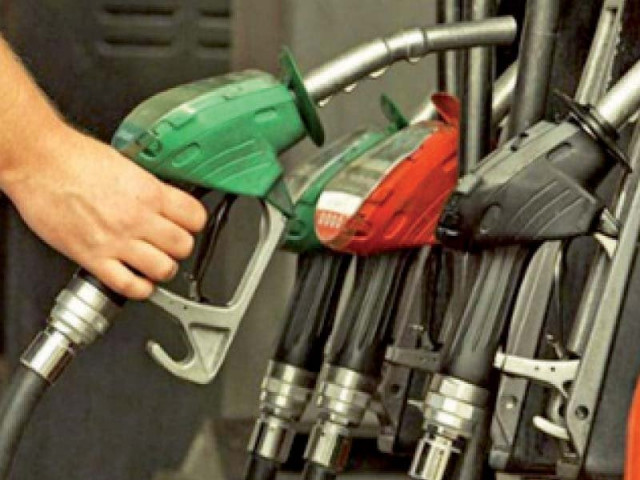On POL products: PTI govt mulls Rs20 per litre GST
Seeks to protect revenues amid sliding oil prices in global market

If the proposal gets the nod of Prime Minister Imran Khan, the consumers will pay minimum Rs50 per litre tax on account of Rs20 GST and Rs30 per litre petroleum levy, in addition to paying other charges like dealers and distribution companies’ margins.
At present, the government charges 17% GST on every litre of petrol, high speed diesel, kerosene oil, light diesel oil and other petroleum products. Due to slump in prices in global market and consequent reduction in domestic market, the government’s tax revenues from petroleum products have been adversely affected.
In yet another major proposal, the government was also considering introducing non-active taxpayer concept for the sales tax purposes, which would stop tax leakages but may become a politically explosive issue for the government.
This one proposal has the potential to generate Rs35 billion additional sales tax revenue through a small amendment in the 11th Schedule of the Sales Tax Act, sources in the Federal Board of Revenue (FBR) told The Express Tribune. The revenue potential will be far higher, if this concept is introduced in the section 73 of the Sales Tax Act, they added.
POL taxation
The sources said that the FBR has moved a proposal to fix the GST rate for petroleum products at Rs20 per litre. This will guarantee minimum Rs320 billion per annum revenue only on account of GST from petroleum products at current consumption levels, said the sources.
The proposal has been discussed at the level of Finance Adviser Dr Abdul Hafeez Shaikh and also has the backing of some other quarters. However, there were certain dissenting voices in the meeting, as some members said that this could be highly inflationary and would also overburden the consumers.
The opponents of the proposal are of the view that the government was already charging Rs30 per litre petroleum levy to protect its revenues from the adverse impacts of the reduction in prices.
The advantage of the petroleum levy is that collection under the levy is not shared with the provinces. The GST collection becomes part of the federal divisible pool that is then distributed between the Centre and the provinces under the National Finance Commission award. For the next fiscal year, the government has projected petroleum levy collection at Rs489 billion for next fiscal year 2020-21, starting from July.
The global oil prices plummeted after outbreak of the deadly coronavirus and the International Monetary Fund (IMF) forecast is that the prices would remain below $44 per barrel till the end of 2022 due to subdued global demand.
The proposal of fixing the GST rate on petroleum products had been originally moved by Ashfaq Tola, a member of the government’s Tax Reforms Implementation Committee, about eight years ago but it was never taken to the next level of approvals.
Non-active taxpayer
The sources said that the FBR was also planning to introduce the concept of active and non-active taxpayer for the GST purposes. Currently, this concept is only limited to income tax.
According to the proposal, any person who has not obtained the sales tax registration is not an active taxpayer. The sources said that the government has moved the proposal to amend the 11th schedule for this purpose also.
The proposal states that if supplier is non-active taxpayer then on supplies to the government departments, the withholding tax agents would deduct 17% GST. The proposal is aimed at generating Rs35 billion in additional taxes in next fiscal year, they added.
Currently, the withholding agents deduct only one-fifth of the standard GST rate from the registered persons, irrespective they regularly file their returns or not.
At present, there is a distinction of registered and unregistered person, which the government wants to change to active and non-active sales tax. There are people and entities that are registered for the sales tax persons but they do not regularly file their monthly and quarterly sales tax returns.
The 11th schedule of the Sales Tax Act describes rates for withholding or deduction by the withholding agents. A corresponding change may also have to be made in section 73 of the Sales Tax Act that deals with certain transactions that are not admissible, said the sources. There could be a new category of non-active taxpayer said the sources.
Published in The Express Tribune, June 7th, 2020.
Like Business on Facebook, follow @TribuneBiz on Twitter to stay informed and join in the conversation.


















COMMENTS
Comments are moderated and generally will be posted if they are on-topic and not abusive.
For more information, please see our Comments FAQ